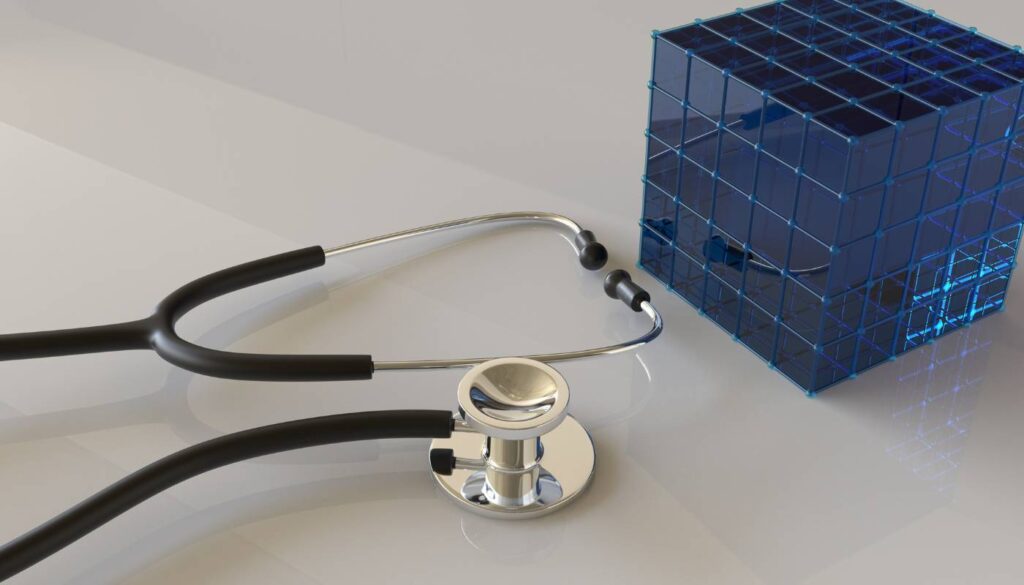Blockchain technology has been considered as disruptive innovation that can revolutionalise the healthcare system. Blockchain in the context of this paper relates to the utilization of blockchain technology in the healthcare industry to enhance the exchange of data and information. Blockchain enables sharing of patients data within and across healthcare systems without compromising the data. The following could enhance care co-ordination, cut down on the expenses incurred in the provision of healthcare service, and enable the patient to have complete control over his or her personal health information.
What is blockchain?
Blockchain is an emerging digital technology solution that enables digital transactions to be stored and shared in a distributed manner without relying on a central point of control. It has a list of transactions that is continuously growing and is stored in blocks that are secured by cryptography and linked by hashes. This makes it possible for the networks of computer systems to independently attester information without the need for a third party.
Blockchain components such as decentralization, data integrity, openness, and safety render it suitable for the healthcare industry. By using blockchains, medical records such as patient’s past medical history can be safely kept and shared among different organizations. Smart contracts automatically perform tasks based on pre-specified rules and are used for self-executing contracts.
Use cases of blockchain in healthcare
Some key applications of blockchain in healthcare are:Some key applications of blockchain in healthcare are:
1. Health Record Management and Interoperability
The use of blockchain in healthcare can lead to the creation of a lifetime personal health record for patients that is accurate. This leads to fragmentation of medical data since patients may attend different healthcare organizations throughout their lifetime. This, Blockchain does by creating a single database where the participants in any given chain can get the same information.
Smart contracts ensure that healthcare data is effectively shared between patients, providers, researchers, and health insurers for maximum value while maintaining privacy at the same time. Such interoperability can really enhance the diagnostic and therapeutic processes.
2. Drug supply chain monitoring
Blockchain brings the aspect of transparency in the supply of drugs, thereby discouraging the manufacture of fake drugs. Each pack of the drug can have its own identity and we can trace it from the suppliers to the end users. In case of any breach, the perpetrators can easily be traced using the blockchain’s unalterable record trail. Smart contracts automate order deliveries and payments between supply chain parties at the right time.
3. Clinical trial management
Healthcare blockchain is expected to play the following role, Healthcare blockchain has the potential to enhance clinical trial management. It might help to avoid acts of altering or manipulating results, thus promoting the integrity of trials. The presence of data in real-time enhances theanalytics and get insights. Payments to participants also gets easy through the use of digital currencies that are created through the use of block chain. Finally, patients can decide when and how much of their medical history to share with the researchers. This transparency can help in achieving a greater number of patients for recruitment and fast trials.
4. Health insurance claims processing
Medical claims require a lot of paperwork and may at times result in delays due to errors in processing. Blockchain minimizes administrative expenses by providing automatic validation of transactions and payment according to the contract terms and conditions. Claims assessment is made more standardized and automated using the smart contract rules to minimize fraud while accelerating the processing of the disbursements.
Future possibilities with blockchain in healthcare
The use of Blockchain in healthcare has a potential to enhance the level of patient involvement, health, errors in medication, prescription misuse, as well as in disease control and policy making through early detection of disease outbreaks.Blockchain-based seamless electronic medical record interoperability can create up to $100–150 billion per year value in the USA healthcare industry.
As the blockchain infrastructure is further developed, the investment made by healthcare organizations is to identify new ways to deliver health care by utilizing the inherent advantages of blockchain technology. Nevertheless, to achieve its full disruptive impact, several technical, regulatory, and organizational issues must be overcome.
Conclusion
Blockchain could benefit healthcare a lot with the patient data, care, drugs, trials, and insurance claims having the possibilities of being enhanced. However, to achieve those benefits, there are adoption challenges that revolve around standardisation, privacies, stakeholders and blockchain scalability. In conclusion, blockchain brings the vision to transform the modern healthcare system into a more transparent, accountable, consenting-based, integral, and collaborative ecosystem.
Seeking more informative articles? Business Vision Magazine is your go-to source.






